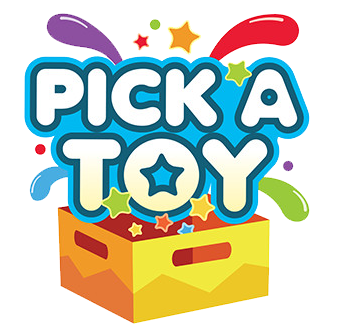Title: Sensory Play for Fine and Gross Motor Skill Development
Introduction
Sensory play is not only a fun and engaging activity for children but also a powerful tool for enhancing their motor skills. Fine motor skills involve the coordination of small muscles, while gross motor skills involve larger muscle groups. Sensory play provides a holistic approach to skill development, addressing both fine and gross motor skills simultaneously. In this blog, we'll explore how sensory play can benefit these essential skills and provide practical ideas for incorporating sensory activities into a child's routine.
Fine Motor Skill Development
Fine motor skills involve the coordination of small muscle groups, particularly those in the hands and fingers. These skills are crucial for tasks like writing, buttoning a shirt, and using utensils. Sensory play aids in fine motor skill development in the following ways:
Hand-Eye Coordination: Sensory activities often require children to manipulate objects, enhancing their hand-eye coordination. Pouring, scooping, and threading beads are examples of activities that promote this skill.
Pinching and Grasping: Many sensory materials, such as playdough, putty, and small objects, require children to pinch and grasp with precision. This strengthens the muscles in their fingers, preparing them for tasks that demand dexterity.
Sensory Exploration: Sensory play encourages children to use their hands to explore textures, shapes, and sizes. This tactile exploration boosts sensory awareness and finger control.
Precision and Control: Activities like drawing or tracing shapes in sand, rice, or shaving cream challenge children to use fine motor skills to create specific patterns and designs.
Gross Motor Skill Development
Gross motor skills involve the coordination of larger muscle groups, such as those in the arms, legs, and core. These skills are essential for activities like running, jumping, and climbing. Sensory play contributes to gross motor skill development by:
Physical Activity: Many sensory activities require physical movement, such as digging in a sensory bin, jumping on a trampoline, or dancing to music. These activities promote muscle strength and endurance.
Balancing Act: Activities like walking on a balance beam made of foam or crawling through a sensory tunnel challenge a child's balance and coordination, improving their gross motor skills.
Spatial Awareness: Sensory play often involves navigating spaces or objects, helping children develop spatial awareness. This is particularly important for activities like catching and throwing balls.
Body Control: Activities that involve body movements, such as swinging, spinning, or climbing, enhance children's control over their bodies and their ability to coordinate movements.
Practical Sensory Play Ideas for Motor Skill Development
Sensory Bins: Fill bins with materials like rice, beans, or sand, and hide small objects or toys for children to discover. Encourage them to use their fingers to find and manipulate the hidden items.
Playdough Fun: Playdough is an excellent tool for fine motor development. Kids can roll, shape, cut, and mold the dough into various forms, enhancing hand strength and coordination.
Obstacle Courses: Set up obstacle courses with tunnels, balance beams, and soft play equipment. Children can navigate these courses, improving their gross motor skills while having a blast.
Art and Craft Projects: Crafting with materials like scissors, glue, and small beads can promote fine motor skills as children cut, paste, and thread.
Sensory Swings: Swinging in a sensory swing or hammock engages core muscles and helps children develop balance and body awareness.
Outdoor Adventures: Encourage outdoor sensory play through activities like jumping on a trampoline, playing in a sandpit, or splashing in puddles.
Nature Exploration: Take nature walks and explore natural sensory materials like leaves, sticks, and rocks. Collect these items and use them for tactile activities.
Conclusion
Sensory play is a valuable tool for promoting the development of both fine and gross motor skills in children. By engaging in activities that encourage hand-eye coordination, muscle strength, and body control, children can develop essential motor skills while having fun and exploring their senses. So, whether it's squeezing playdough, building an obstacle course, or simply enjoying outdoor adventures, sensory play is a fantastic way to support a child's physical and sensory development.
